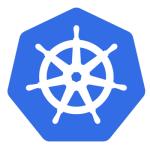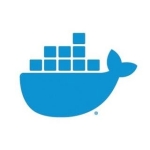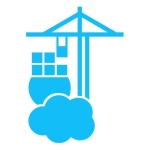What is our primary use case?
The way our consultancy works is we have a number of internal products which we use, such as testing systems. We deploy our applications in scientific products and take advantage of automation. We are focusing on automation development for our customers.
How has it helped my organization?
Previously we were using different automation methods. This product, however, is great. With OpenShift, you're able to achieve significantly higher deployments. There are more deployments per month on OpenShift. At the same time, it's all the tower application availability issues on offer that are great. Now, OpenShift follows us to make sure that all our applications are always highly available.
What is most valuable?
Openshift is a very developer-friendly product.
The self-service allows us to deliver applications fast to production.
The functionality is quite good, even though we may only use 30% of it.
What needs improvement?
The solution has pretty good features overall. I can't recall if there are any that are lacking.
The pricing is quite high. It would be nice if they could make it more competitive.
The solution needs to introduce open ID connect integration for role-based access control.
For how long have I used the solution?
I've been using the solution for maybe four years at this point.
What do I think about the stability of the solution?
This is a rather new product. It's only been on the market for 1.5 years, and therefore has a lot of growing to do. While the earlier versions were not as stable, we find version four to be very good and much improved.
What do I think about the scalability of the solution?
You can scale the solution, however, we don't have that much money and therefore we aren't really scaling it.
We have architects, engineers, DevOps, and developers on the solution. We're a pretty small company of about 50, and maybe 40 users are using Openshift internally.
How are customer service and support?
If anything, we would have to go to Red Hat to get technical support, however, we've been able to solve our own problems internally. Therefore, we've never really used technical support. I can't speak to their level of responsiveness or knowledge.
Which solution did I use previously and why did I switch?
While it's completely different, we did use Ansible as a way of automation and to deploy applications, for example, on top of just using Linux and additional layers of stuff. Openshift is just a better product and more geared towards what we need.
How was the initial setup?
We started to use an Openshift a long time ago. Right now, it's difficult to say if it's straightforward or complex as every version is completely different. Once we were with Openshft version three, it was pretty easy to install. As was version four.
However, then it will be installed inside your infrastructure on the public clouds of endpoints.
What's my experience with pricing, setup cost, and licensing?
The solution is very costly. However, you do get good value for the price, and therefore we're willing to pay even if the cost is high.
What other advice do I have?
We are a Red Hat partner. We're a consultancy firm.
We started using OpenShift version two, then we migrated to OpenShift's version three and now we are on a complete version four.
We tend to use all deployment models - on-premises, public and private clouds, and hybrid options.
If a company is considering the solution, I would advise that they maybe start working with some guys who have experience with the product. It will be much more work otherwise, and you can save time by avoiding POCs.
Overall, I would rate the solution ten out of ten. Even though the pricing is high, I knew what I was getting into, and for me, for the value we get from the product, it's worth the cost.
Which deployment model are you using for this solution?
Hybrid Cloud
Disclosure: My company has a business relationship with this vendor other than being a customer: Partner



















